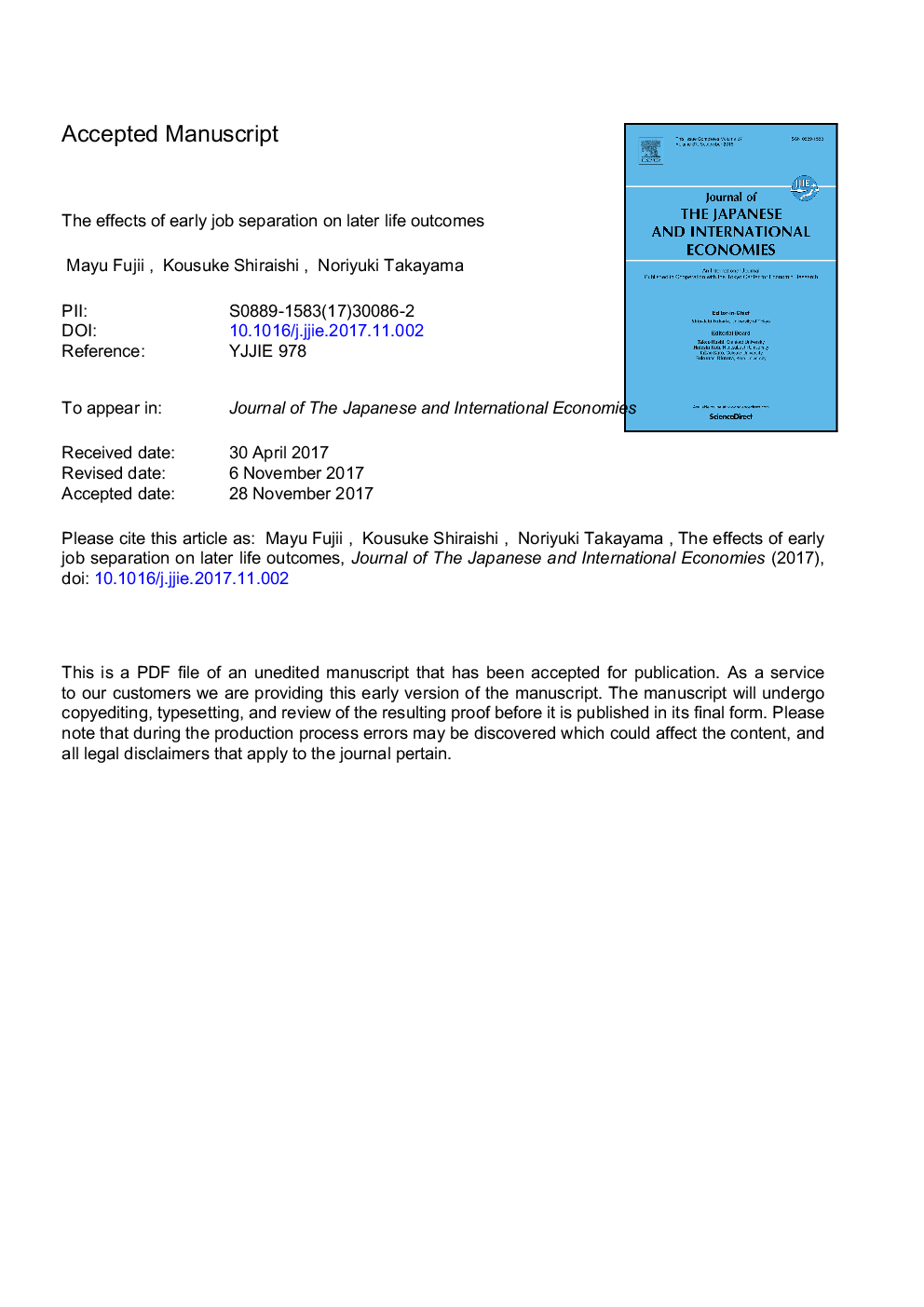| Article ID | Journal | Published Year | Pages | File Type |
|---|---|---|---|---|
| 7366252 | Journal of the Japanese and International Economies | 2018 | 42 Pages |
Abstract
Using panel data from the 2011 Japanese Longitudinal Survey on Employment and Fertility (LOSEF) and focusing on individuals who obtained regular employment as new graduates, this study examines the effects of early job separation on various later life outcomes. Applying the method of propensity score matching, we show that the average treatment effects on the treated on later life outcomes of separating from the first job within the first five years are, in general, negative for male respondents. In particular, separating from the first job within the first five years has long-standing negative effects on their probability of having regular employment, on individual income, and on the years enrolled in the Employees' Pension Insurance. It also reduces the probability of being married and having children in the future. Furthermore, for both male and female respondents, the negative effects of early job separation on later life outcomes may be more serious for those who separated earlier.
Related Topics
Social Sciences and Humanities
Economics, Econometrics and Finance
Economics and Econometrics
Authors
Mayu Fujii, Kousuke Shiraishi, Noriyuki Takayama,
